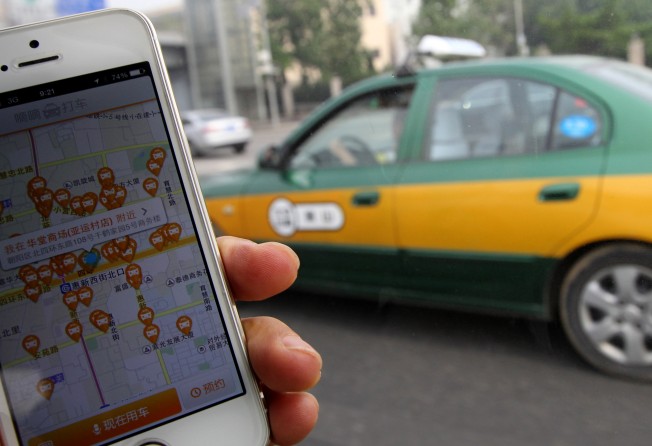Is China car-hailing app Didi Kuaidi the next monopoly taxi business?
By introducing extra fees without a satisfactory explanation, the car-hailing app faces backlash

Once upon a time, it was considered heroic to break a national monopoly in the taxi business, but it soon became a different kind of monopoly by itself. This is certainly far from the original definition of a "sharing economy".
Didi Kuaidi, often dubbed by media as the "Uber of China", is now in a new public relations crisis in its home market after the car-hailing app suddenly decided to add a so-called "dynamic extra fee" to passengers' rides that depends on location, weather, traffic situation and other various factors.
The reaction from passengers? Frustration. Many felt they were cheated by Didi Kuaidi, which now controls about 80 per cent of the domestic market. Hundreds of comments by frustrated passengers were posted on Didi Kuaidi's official social media page on Weibo and the news quickly spread across state media over the weekend.
"So, Didi Kuaidi killed taxi business monopoly in China and now Didi Kuaidi becomes the biggest monopoly [in the taxi business]," said one Weibo post.
It got worse when Didi Kuaidi staff told state media the "dynamic extra fee" would be decided by the so-called "big data" system without any further explanation of how "big data" really worked in deciding the price rise. Some passengers complained their rides ended up being more expensive than taking regular cabs and they wanted to report their cases to local transport regulators.
Just a couple of months ago, the majority of public opinion stood behind Didi Kuaidi against the regulators because many passengers felt it could help them find cabs more easily and at a lower rate.
Now passengers are turning to the transport regulators for completely different reasons: wanting the regulators to step in and bring Didi Kuaidi under control before it is too late.
There are various definitions of what the popular concept of a" sharing economy" is. It could mean a service provider works with various parties including the individuals, institutions and governments to share and redistribute resources for better quality of life or other purposes. No matter what kinds of services are offered, for example, Uber or Airbnb in the US, a "sharing economy" is supposed to be a win-win. In other words, customer satisfaction should be a top priority.
In the case of Didi Kuaidi, citing "big data" as an excuse to explain why the price went up so much doesn't sound satisfying. In fact, it sounds more like old-fashioned state-owned enterprises with monopoly market share.
Didi Kuaidi certainly has the chance to be a reformer and leader in public transport, but if the company now makes quick profit-making as its priority by introducing extra fees, then it's no different from other monopoly businesses.
George Chen is managing editor of SCMP International Edition. For more Mr. Shangkong columns: facebook.com/mrshangkong or follow @george_chen on Twitter